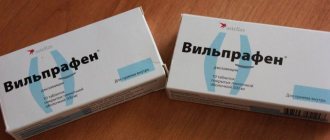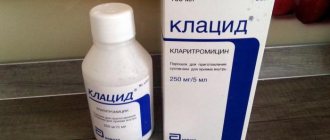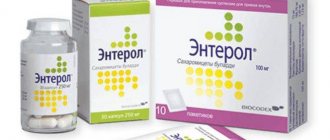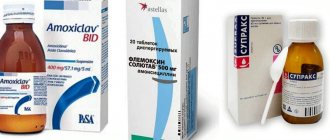Home | About us | Delivery | Advertisers | Login | Registration
- Medicines
- dietary supplementsVitamins
- Categories from A to Z
- Brands from A to Z
- Products from A to Z
- Medical equipment
- beauty
- Child
- Care
- Honey products appointments
- Herbs and herbal teas
- Medical nutrition
- Journey
- Making medicinesStock
Pharmacy online is the best pharmacy in Almaty, delivering medicines to Almaty. An online pharmacy or online pharmacy provides the following types of services: delivery of medicines, medicines to your home. Online pharmacy Almaty or online pharmacy Almaty delivers medicines to your home, as well as home delivery of medicines in Almaty.
my basket
Apteka84.kz is an online pharmacy that offers its customers medicines, medicinal and decorative cosmetics, dietary supplements, vitamins, baby food, intimate products for adults, medical equipment and thousands of other medical and cosmetic products at low prices. All data presented on the Apteka84.kz website is for informational purposes only and is not a substitute for professional medical care. Apteka84.kz strongly recommends that you carefully read the instructions for use contained in each package of medicines and other products. If you currently have any symptoms of the disease, you should seek help from a doctor. You should always tell your doctor or pharmacist about all the medicines you take. If you feel you need further help, please consult your local pharmacist or contact our GP online or by telephone.
© 2012 Pharmacy 84.
Zinnat®
Pills
The standard course of therapy is 7 days (can vary from 5 to 10 days). For optimal absorption, the drug should be taken after meals.
Adults
| Indications | Dose (tablets and oral suspension) |
| Most infections | 250 mg 2 times/day |
| Urinary tract infections | 125 mg 2 times/day |
| Mild to moderate lower respiratory tract infections, such as bronchitis | 250 mg 2 times/day |
| More severe lower respiratory tract infections or if pneumonia is suspected | 500 mg 2 times/day |
| Pyelonephritis | 250 mg 2 times/day |
| Uncomplicated gonorrhea | 1 g once |
| Borreliosis (Lyme disease) in adults and children over 12 years of age | 500 mg 2 times/day for 20 days |
Children from 3 years old
| Most infections | 125 mg (1 tablet of 125 mg) 2 times/day. Maximum daily dose - 250 mg |
| Otitis media or more severe infections | 250 mg (1 tablet of 250 mg or 2 tablets of 125 mg) 2 times a day. Maximum daily dose - 500 mg |
Oral suspension
The drug Zinnat® in the form of an oral suspension is recommended for use in children from 3 months
. There is no experience with the use of Zinnat® in children under 3 months of age.
If a fixed dose is preferred, then for most infections it is recommended to take 125 mg 2 times a day. Children aged 2 years and older
for
otitis media or more severe infections,
prescribe 250 mg 2 times a day; the maximum daily dose is 500 mg.
When treating infants and children, it may be necessary to calculate the dose depending on body weight and age. For most infections
the dose for
infants and children aged 3 months to 12 years
is 10 mg/kg 2 times a day, but not more than 250 mg/day.
For otitis media and more severe infections,
the recommended dose is 15 mg/kg 2 times a day, but not more than 500 mg/day.
The following tables show doses depending on the age and body weight of the child for dosing Zinnat® suspension 125 mg/5 ml in 5 ml measuring spoons included in the package.
Dose of 10 mg/kg body weight prescribed for most infections
| Age | Body Weight (kg) (approx.) | Single dose (mg) when taken 2 times a day | Number of scoops (5 ml) per dose |
| 3-6 months | 4-6 | 40-60 | 1/2 |
| 6 months-2 years | 6-12 | 60-120 | 1/2-1 |
| 2-12 years | from 12 and over 20 | 125 | 1 |
Dose of 15 mg/kg body weight prescribed for otitis media and more severe infections
| Age | Body Weight(kg)(approx.) | Single dose (mg) based on body weight | Number of scoops (5 ml) per dose |
| 3-6 months | 4-6 | 60-90 | 1/2 |
| 6 months-2 years | 6-12 | 90-180 | 1-1.5 |
| 2-12 years | from 12 and over 20 | 180-250 | 1.5-2 |
Step therapy
Cefuroxime is also available as a sodium salt (Zinacef®) for parenteral administration, which allows the same antibiotic to be prescribed sequentially when switching from parenteral to oral therapy is necessary. The drug Zinnat® is effective after parenteral use of the drug Zinacef® for the treatment of pneumonia and exacerbation of chronic bronchitis.
The duration of parenteral and oral courses of treatment is determined by the severity of the infection and the clinical picture.
Pneumonia
The drug Zinacef® (cefuroxime in the form of sodium salt) at a dose of 1.5 g 2-3 times a day (IV or IM) for 48-72 hours, then the drug Zinnat® (cefuroxime axetil) orally at a dose of 500 mg 2 times/day for 7-10 days.
Exacerbation of chronic bronchitis
The drug Zinacef® (cefuroxime in the form of sodium salt) at a dose of 750 mg 2-3 times a day (IV or IM) for 48-72 hours, then a course of treatment with Zinnat® (cefuroxime axetil) orally at a dose 500 mg 2 times/day for 5-10 days.
Indications
Zinnat, as an antibiotic for children, namely a suspension, is prescribed when it is determined that the causative agent of the disease is sensitive to the effects of the drug.
Application is advisable for:
- pneumonia and bronchitis;
- diseases of the upper respiratory tract;
- inflammatory processes in the genitourinary system of an infectious nature;
- pathological inflammation of a bacterial nature on the skin;
- systemic infections, for example, peritonitis and borreliosis.
Contraindications
All dosage forms of the drug Zinnat are contraindicated in case of hypersensitivity to β-lactam antibiotics (if there is a history of sensitivity to cephalosporin antibiotics , carbapenems , penicillins ).
Zinnat tablets should not be taken by children under 3 years of age.
A suspension prepared from granules is not prescribed to people who have hypersensitivity to aspartame or phenylketonuria . This form of antibiotic should also not be used to treat children under 3 months of age.
Zinnat is prescribed with caution for diseases of the digestive system (including a history of it), ulcerative colitis , impaired renal function, as well as during pregnancy and breastfeeding.
Storage conditions
Unopened packaging of the drug can be stored at room conditions, at a temperature not exceeding 30 degrees Celsius. The storage location must be protected from direct sunlight and away from direct access to children.
After dilution, the suspension should be refrigerated and used within 10 days. Reuse of diluted contents is strictly prohibited.
The shelf life of unopened granules is 2 years, tablet form is 3 years.
Zinnat's analogs
Level 4 ATC code matches:
Cefutil
Zinatsef
Analogs of this medicine are the following drugs: Axosef , Antibioxime , Zinacef , Zinoximor , Xorim , Cefurabol , Cefurosin , Cefuroxime sodium , Cefuroxime axetil , etc. Only the attending physician can select Zinnat analogues for children after establishing the correct diagnosis.
pharmachologic effect
The substance cefuroxime axetil is a precursor of cefuroxime, belonging to the second generation of cephalosporin antibiotics . Shows activity against a wide range of pathogens, including strains that produce β-lactamases.
Cefuroxime is noted to be resistant to bacterial β-lactamases, so the substance is effective against ampicillin-resistant or amoxicillin-resistant strains. It has a bactericidal effect, which is associated with the process of suppressing the synthesis of bacterial cell walls due to binding to the main target proteins.
In vitro activity of cefuroxime was noted against a number of gram-negative aerobes, gram-negative aerobes, anaerobes (gram-positive and gram-negative cocci, gram-positive and gram-negative rods, gram-negative spirochetes).
The following microorganisms are insensitive to cefuroxime: Pseudomonas spp., Clostridium difficile, Acinetobacter calcoaceticus, Campylobacter spp., strains of Staphylococcus aureus and Staphylococcus epidermidis that are resistant to methicillin, Legionella spp., Listeria monocytogenes. Also insensitive to the active substance of the drug Zinnat are certain strains of the following genera: Morganella morganii, Enterococcus (Streptococcus) faecalis, Serratia spp., Citrobacter spp., Proteus vulgaris, Bacteroides fragilis, Enterobacter spp.
Drug interactions
Medicines that reduce the acidity of gastric juice help reduce the bioavailability of cefuroxime axetil in comparison with its bioavailability after taking the drug on an empty stomach, and also neutralize the effect of its excessive absorption after meals.
When performing a ferrocyanide test, a false negative result may occur. In this regard, it is recommended to use hexokinase or glucose oxidase techniques to determine the concentration of glucose in blood or plasma fluid.
Like other antibacterial medications, Zinnat 250 mg can affect the composition of the intestinal microflora, which helps to reduce the reabsorption of estrogen and, as a result, reduce the effect of taking hormonal oral combined contraceptives.
Concomitant use with loop diuretics slows down tubular secretion, reduces renal clearance, increases plasma concentrations and increases the half-life of cefuroxime.
Taking this medication does not in any way affect the quantitative determination of creatinine using the alkali picrate method.
Concomitant use of cefuroxime and probenecid may increase the AUC of cefuroxime by 50%.
In accordance with the instructions for Zinnat 250 mg, when taking the medication in combination with diuretics and aminoglycosides, the likelihood of various nephrotoxic effects increases.
What group of antibiotics does it belong to?
"Zinnat" is a representative of the cephalosporin class. A feature of the active ingredients in this category is their resistance to beta-lactamases. "Zinnat" is active against most common strains of pathogenic microflora. This drug is available in several dosage forms. At the pharmacy you can buy special soluble granules for preparing a medicinal suspension and the antibiotic “Zinnat” in the form of oral tablets.
The medication in question is produced in the UK by the pharmaceutical company GlaxoSmithKline. The antibacterial drug is intended for the treatment of infectious diseases in children. The antibiotic "Zinnat" can be given to infants older than three months.
Side effects
Complications when taking the drug occur in adults and children of any age. They may appear if the instructions are violated, but adverse reactions cannot be excluded even if all the rules are followed.
Most common reactions:
- Headache and dizziness, accompanied by a deterioration in general health and decreased performance.
- Weakness and fatigue, aggravated by pain in the joints and muscles.
- Superinfection, in which the mucous membranes of the genital organs and oral cavity are affected by fungi. When the intestines are involved in the process, diarrhea is observed, which is quite difficult to treat.
- On the part of the hematopoietic system, the development of leukopenia, a decrease in the number of platelets and the appearance of signs of hemolytic anemia are possible. Such disorders occur quite rarely, more often in children.
- From the digestive tract, pain in the stomach and intestines, indigestion and lack of appetite are observed. The condition is accompanied by severe thirst and dryness of the mucous membranes of the oral cavity.
- Some patients develop jaundice and mild hepatitis.
- On the part of the skin, it is possible to develop banal urticaria, but some patients develop signs of Stevens-Johnson syndrome.
This disorder is one of the varieties of exudative erythema maligna.
In this case, the patient develops a small rash not only on the skin, but also on the mucous membranes, which causes serious discomfort and makes it difficult to eat and drink. The disease is accompanied by itching and gradual opening of the lesions with the release of a small amount of fluid.
If left untreated, the condition progresses and lesions form on the skin, the appearance of which is associated with damage to the rash. A wet surface increases the risk of infection.
If such symptoms occur, you should stop using the medicine. Usually this is enough for the manifestations to gradually disappear. If the signs do not disappear, symptomatic treatment is prescribed.
Renal Function and Dosage
When prescribing Zinnat 250 mg tablets for children and adults, the doctor takes into account how efficiently the patient’s kidneys work. The active compound is predominantly eliminated by the renal system. Therefore, a dose reduction is required for certain problems with organ performance. Focus on creatinine clearance. If it is more than 30 units, the half-life of Zinnat is estimated at 1.4–2.4 hours, which means that no special dose adjustment is necessary. With a creatinine clearance of 10–29 units, the half-life increases to 4.6 hours, so the drug is used only once a day, using a standard volume.
With a creatinine clearance of less than 10 units, the half-life reaches 17 hours, the drug is prescribed for dosing every two days. If the patient is prescribed hemodialysis, during the procedure the half-life of Zinnat is estimated at an average of three hours (with a deviation of an hour up and down). When prescribing Zinnat 250 mg tablets for adults who are forced to undergo hemodialysis, or for children, the doctor must prescribe this drug after the blood dialysis procedure. The patient should use an additional single dose.
Compound
Zinnat antibiotic for children contains the substance cefuroxime axetil as the main active component, due to which the therapeutic effect is achieved. The ingredient has antibacterial, anti-inflammatory properties, and also prevents the spread of bacteria throughout the body.
The tablets contain auxiliary ingredients:
- Microcrystalline cellulose.
- Sodium lauryl sulfate.
- Colloidal silicon dioxide.
- Hydrogenated vegetable oil.
- Croscarmellose sodium.
The granules also contain auxiliary ingredients in the form of sucrose, aspartame and stearic acid. Additionally, the granules contain povidone and flavoring. Excipients in any form of medication do not have therapeutic properties, but are an important part of the medicine.








